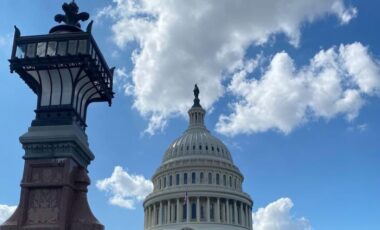Posts by Jake Parker, Senior Director of Government Relations, Security Industry Association
What to Know About Colorado’s New Biometric Data Requirements
Colorado Adds New Requirements for Biometric Data to Its Privacy Law: Marginal Adjustments in Contrast to Illinois BIPA On May 31, 2024, Colorado Gov. Jared Polis signed into law HB-1130, which broadens the scope and adds some new requirements for collecting and processing biometric data under the Colorado Privacy Act (CPA) passed in 2021. As…
Keep Reading »Misgivings Cloud First-in-Nation Colorado AI Law: Implications and Considerations for the Security Industry
Governor Asks for Further Refinement and Federal Preemption On May 17, 2024, Colorado Gov. Jared Polis signed into law Senate Bill 205 (SB-205), making Colorado the first state in the nation to enact a measure regulating artificial intelligence (AI) that is applicable broadly. Following a winding path that started with importing a bill drafted in…
Keep Reading »EU Passes AI Act: What Does It Mean for the Security Industry?
In the early morning hours on Dec. 9, 2023, European Union (EU) lawmakers announced that an agreement was reached to finalize its Artificial Intelligence (AI) Act, legislation under development for more than two years and now expected to be formally adopted in early 2024. This legislation will make the EU the first to enact sweeping…
Keep Reading »NDAA Section 889 Update: Grant Funding Eligibility for Equipment Replacement
Since 2018, the Security Industry Association (SIA) has provided timely updates to members about implementation of “Section 889” U.S. government procurement and grant prohibitions on certain Chinese video surveillance and telecommunication equipment, as a benefit to SIA members and their customers. Today SIA provides new information that clarifies recent reports about the authorized use of…
Keep Reading »Security Industry Association Files Amicus Brief in Key BIPA Case
At the end of August 2023, the Security Industry Association (SIA) filed an amicus curie (“friend of the court”) brief in support of a U.S. District Court ruling that rejects an incorrect interpretation of requirements under the Illinois Biometric Information Privacy Act (BIPA) of 2008 in a case under consideration by the Ninth Circuit Court…
Keep Reading »New York Lifts Ban on Biometric Technologies in K-12 Schools
Retains Current Restriction on Facial Recognition On Sept. 27, 2023, New York State Department of Education Commissioner Betty A. Rosa issued a determination that lifted the nearly three-year ban on use of biometric technologies in both public and private K-12 schools in effect from December 2020. Despite objections from the New York School Boards Association,…
Keep Reading »How SIA’s Counter-UAS Working Group Is Addressing Evolving Drone Threats
Earlier this month, members of SIA’s Counter-UAS Working Group, comprised of technology providers, security integrators, service providers and subject matter experts on counter-drone technology, visited lawmakers and staff on Capitol Hill to support action urgently needed to address the rapidly evolving threats posed by the misuse and weaponization of uncrewed aircraft (UAS) systems, i.e., drones.…
Keep Reading »FCC Adopts New Rules Implementing the Secure Equipment Act of 2021
FCC prohibits new device authorizations for Chinese telecommunications and video surveillance products on the FCC’s Covered List Following its adoption earlier this month, on November 25 the Federal Communications Commission (FCC) published its Report and Order as required by the Secure Equipment Act of 2021. The Security Industry Association (SIA) applauds actions by the FCC,…
Keep Reading »What the American Data Privacy and Protection Act Means for the Security Industry
SIA’s Jake Parker Shares Analysis Status: Originally known as the “three-corners” bill, the American Data Privacy and Protection Act (ADPPA) is significant because it is the first framework for a U.S. national data privacy law that has been developed on a bipartisan basis, albeit only at the committee level so far. Developed jointly by three…
Keep Reading »Security Industry Association Applauds Passage of Chips Bill
Provisions Support Security Supply Chain, U.S. Competitiveness On July 27, the Chips and Science Act of 2022 cleared its final hurdle with passage in the U.S. House of Representatives. The bill now moves to President Biden’s desk for his signature, following 18 months of negotiations over the final provisions of the measure to boost U.S.…
Keep Reading »









